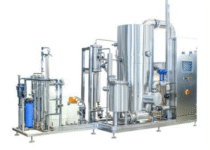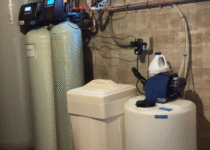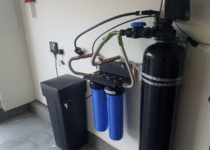The Real Story Behind Salt-Free Water Systems on Long Island
Water. It seems so simple, yet the way it runs through our homes shapes everything from how our clothes feel to how our skin reacts after a shower. On Long Island, water isn’t just water—it’s often “hard water,” loaded with minerals like calcium and magnesium that leave behind chalky deposits and make life just a bit more annoying. That’s where the conversation about softeners, conditioners, and salt-free alternatives really begins. And trust me, if you’ve ever scrubbed stubborn stains off a glass shower door, you know why this matters.
The Long Island Hard Water Dilemma
Ask anyone in Nassau or Suffolk and they’ll tell you: hard water is a fact of life. It leaves buildup on faucets, shortens the life of dishwashers, and even makes hair feel rough. Traditional softeners—those big tanks that use salt—do their job, but not everyone wants the added sodium or the constant maintenance of lugging heavy salt bags. That’s why interest in alternatives has been growing, especially the salt free water softener Long Island homeowners are starting to ask about.
These systems promise to reduce scale and keep appliances running smoother, all without the salty brine discharge that can be tough on the environment. But are they really “softeners” in the traditional sense? That’s where the story gets a little more complicated.
Conditioner vs. Softener: Clearing the Confusion
Let’s get this out of the way—there’s a real difference between a water conditioner and a water softener. A softener actually removes calcium and magnesium through ion exchange, replacing them with sodium or potassium ions. That’s why your shower glass stays sparkling clean and your skin feels softer.
A conditioner, on the other hand, doesn’t actually remove minerals. Instead, it changes the way those minerals behave, preventing them from sticking to pipes and surfaces. It’s like dealing with a mischievous friend—not getting rid of them, but making them less troublesome. If you’ve ever wondered about water conditioner vs softener, this is the key distinction: one eliminates hardness, the other manages it.
And honestly, which you choose comes down to priorities. If scale prevention is your main concern, conditioners can do the trick. But if you’re looking for that silky, “hotel shower” water, a softener might still be the way to go.
Why Salt-Free is Catching Attention
So why are more Long Islanders looking into salt-free systems? For one, there’s the environmental angle. Traditional softeners flush out brine into the wastewater system, which isn’t great for local ecosystems. Some towns are even cracking down on salt-based systems because of their environmental impact.
Then there’s convenience. No salt to buy, no heavy bags to lug down to the basement, no regeneration cycles to worry about. A salt-free conditioner just does its job quietly. For families trying to reduce sodium intake, it’s another plus—although the amount added by a softener is small, it’s something health-conscious homeowners think about.
But—and this is a big but—it’s important to understand that salt-free options don’t technically soften water. They condition it. That distinction might not bother everyone, but it’s worth knowing before you spend the money.
Reading the Reviews with a Grain of Salt
Of course, if you go online and start searching, you’ll find a mix of glowing praise and skeptical takes on salt-free systems. Some people swear their scale vanished and their water tastes fresher. Others say they noticed little to no difference at all.
That’s the tricky part with saltless water system reviews—so much depends on the original water quality in your area, your household’s expectations, and even the brand of system installed. Reviews can be helpful, but they’re not a one-size-fits-all truth. It’s a bit like reading restaurant reviews: the same meal can be a five-star experience for one diner and a disappointment for another.
Finding the Right Fit for Your Home
So what should a Long Island homeowner do? Start with testing your water. A professional water test will tell you exactly how hard it is and what minerals or contaminants you’re dealing with. From there, you can make an informed decision.
If your water is extremely hard and you’re tired of constant buildup, a traditional softener may still be your best bet. If you want to reduce maintenance, avoid salt, and cut down on environmental impact, a conditioner could be a better fit. Some households even combine systems to get the benefits of both.
At the end of the day, the “right” solution is the one that fits your lifestyle, your health goals, and your tolerance for maintenance. No single option is perfect for everyone, and that’s okay.
Final Thoughts: Beyond the Hype
Water treatment is one of those behind-the-scenes choices that quietly shapes your daily life. Whether you go salt-free, stick with a traditional softener, or opt for a conditioner, the goal is the same: making your home a little easier to live in.



